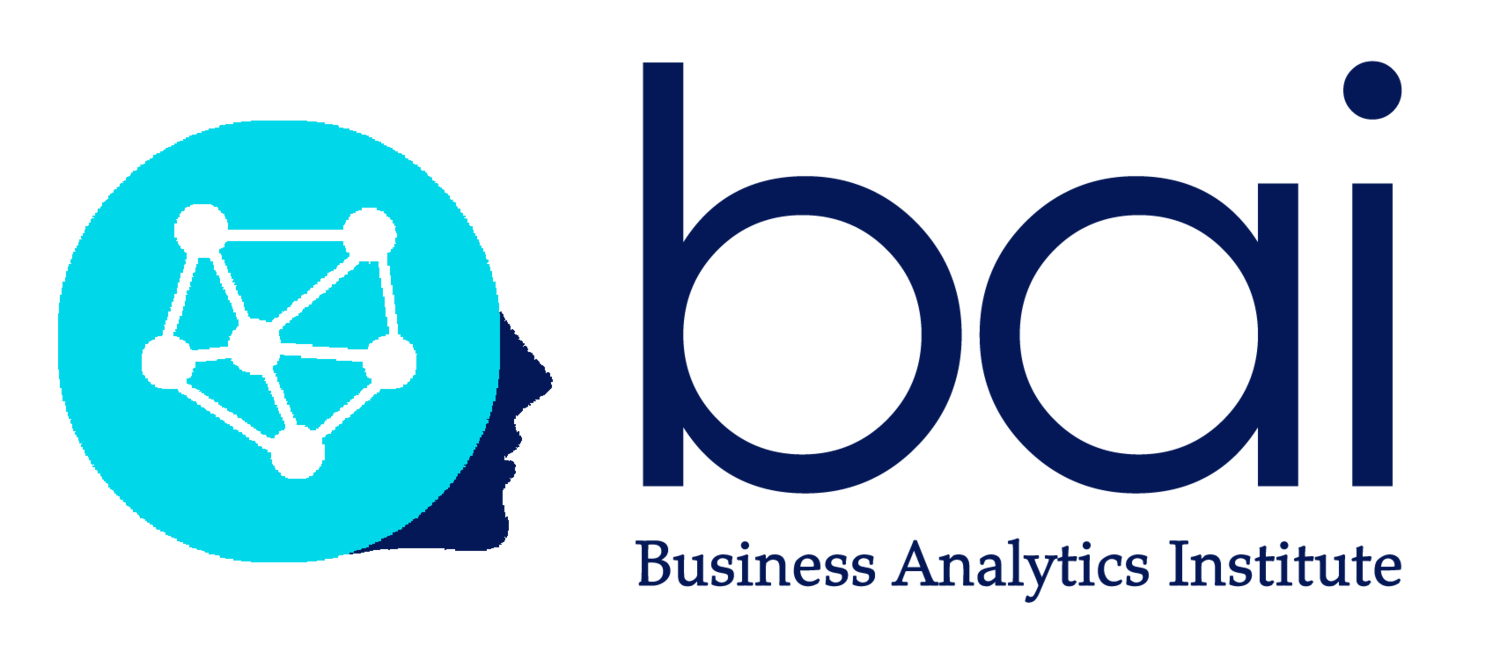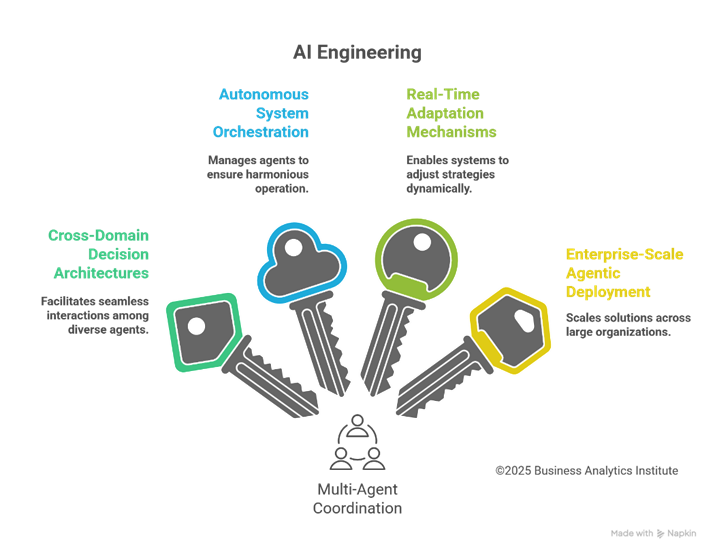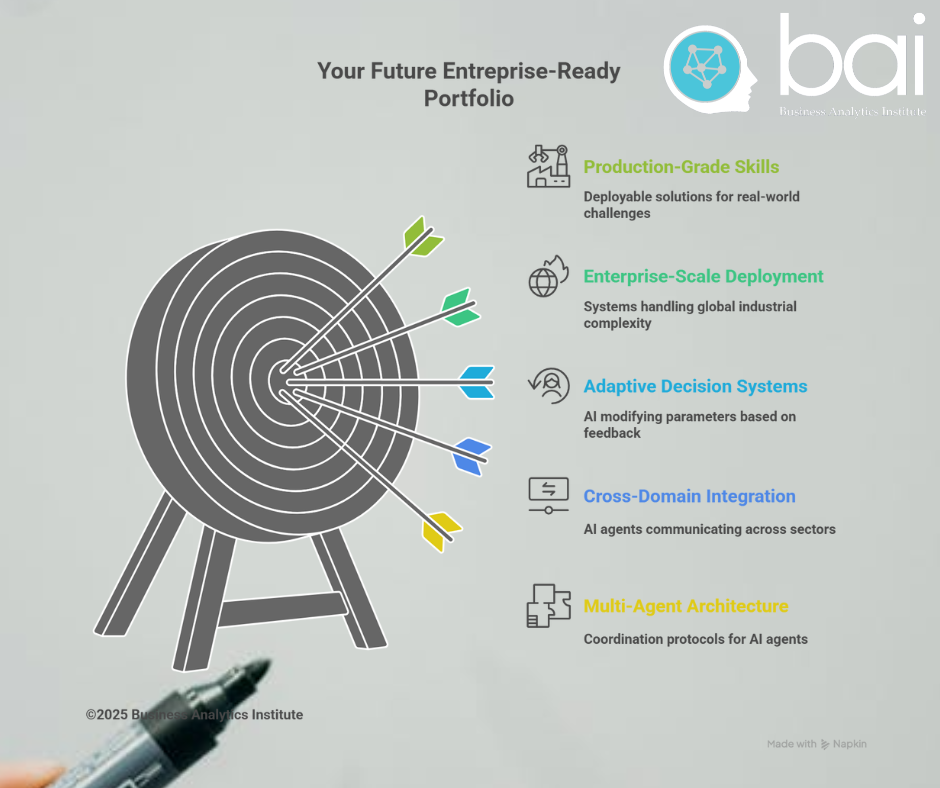AI Engineering : the Heart and Soul of Agentic Systems
As a promising AI engineer, you're not just building models—you're architecting the autonomous systems that will reshape entire industries. The next evolution isn't about more powerful algorithms; it's about agentic AI systems that make independent decisions, adapt to complex environments, and orchestrate multi-domain operations.
The technical reality is already here. SAP's AI agents autonomously optimize supply chains across 27,000+ enterprise clients (SAP, 2024). Motor Oil Group's agentic systems compressed multi-week engineering workflows into real-time processes (Microsoft, 2024). Siemens' Industrial Copilot doesn't just automate—it makes autonomous technical decisions while balancing business constraints (Siemens, 2023).
But here's what separates tomorrow's AI engineers from today's model builders: architecting multi-agent systems that don't just execute tasks but redesign entire operational paradigms.
The Technical Gap in Software Engineering The shift from model building to system architecture represents a fundamental transformation in what it means to be an AI engineer.
Traditional Software Engineering: You build ML pipelines, optimize model performance, and deploy inference systems. You're solving isolated technical problems.
Agentic System Architecture: You design autonomous agents that coordinate across domains, make strategic decisions, and evolve their own operational parameters. You're building the technical infrastructure for AI-driven transformation.
The Reality: When Klarna deployed its AI assistant powered by OpenAI, it handled the work equivalent to 700 full-time agents—yet the company had fewer than 10 engineers capable of architecting the multi-agent system that coordinated customer service, fraud detection, and payment processing simultaneously (Klarna, 2024). This talent scarcity explains why companies like Google DeepMind, Anthropic, and Microsoft offer AI engineers with multi-agent system experience total compensation packages that double those of traditional ML engineers (levels.fyi, 2024)..
What Current Programs in AI Aren’t Teaching You
Traditional curricula focus on ML fundamentals, deep learning architectures, and deployment optimization. You learn to build models but not to architect autonomous systems that coordinate across technical domains.
Missing Technical Skills:
· Multi-agent coordination protocols
· Cross-domain decision architectures
· Autonomous system orchestration
· Real-time adaptation mechanisms
· Enterprise-scale agentic deployment
The BAI Difference: Our upcoming Winter School focuses on hands-on development of production-ready agentic systems for current industrial challenges across Communications, Manufacturing, and Transportation domains. You'll go beyond coding to explore agentic frameworks that coordinate multiple autonomous agents, designing the communication protocols, decision hierarchies, and failure recovery mechanisms required for industry-standard applications.
Your Value to the Business
While software engineers optimize individual models, you'll architect the agentic systems that coordinate multiple AI components:
✅ Multi-Agent Architecture: Design coordination protocols between autonomous AI agents handling different technical domains
✅ Cross-Domain Integration: Build systems where AI agents in manufacturing communicate with logistics agents and financial planning agents
✅ Adaptive Decision Systems: Architect AI that modifies its own decision parameters based on real-time performance feedback
✅ Enterprise-Scale Deployment: Implement agentic systems that handle the technical complexity of global industrial operations
✅ Production-Ready Portfolio: Deploy actual agentic systems for real industrial challenges—not just academic demos
BAI Winter School Investment Analysis
Program Cost: €1,645 + €450 accommodation = €2,095 total
Technical ROI:
· Production-ready agentic system in your GitHub portfolio
· Technical differentiation in competitive AI engineering job market
· Hands-on experience with enterprise-scale multi-agent coordination
· Technical depth that commands premium compensation
Context: AI engineers with agentic system experience command significant salary premiums because the technical talent supply remains critically low (McKinsey & Company, 2023). This specialization prepares you for accelerated career progression into technical leadership roles, as companies building AI-driven products desperately need engineers who can architect autonomous systems—not just implement them. Your capstone project alone becomes a tangible differentiator in interviews, transforming abstract discussions about multi-agent coordination into concrete demonstrations of production-ready systems you've actually built.
Software engineers graduate knowing how to train models and optimize inference. You can graduate knowing how to design the autonomous systems that coordinate those models across enterprise operations.
When you walk into technical interviews, you won't just discuss model architectures—you'll present actual agentic systems you've deployed. You won't just understand multi-agent coordination theoretically—you'll have built the technical infrastructure that enables it.
AI engineers designing multi-agent coordination systems will define the next decade of autonomous AI infrastructure and collaborative intelligence.
The question isn't whether agentic AI will transform software architecture—it's whether you'll architect the systems that transform business.
Ready to architect the future of autonomous AI systems? Learn more at baiwinter.com or contact Sarah Joubert at info@baiwinter.com
Will you build the agentic systems that transform your future?
#AgenticAI #MultiAgentSystems #AIEngineering #AutonomousAI #AIArchitecture #MachineLearning #AIInfrastructure #TechnicalLeadership #EnterpriseAI #BusinessAnalytics #WinterSchool #CareerDevelopment
Selected References
The BAI Winter School on Agentic Systems and the Transformation of Work, January 28 - February 7, 2026
Klarna. (2024). Klarna AI assistant handles two-thirds of customer service chats in its first month. Klarna Newsroom. https://www.klarna.com/international/press/klarna-ai-assistant-handles-two-thirds-of-customer-service-chats-in-its-first-month/
levels.fyi. (2024). AI/ML engineer compensation data. https://www.levels.fyi/
McKinsey & Company. (2023). The state of AI in 2023: Generative AI's breakout year. McKinsey Global Institute. https://www.mckinsey.com/capabilities/quantumblack/our-insights/the-state-of-ai-in-2023-generative-ais-breakout-year
Microsoft. (2024). Motor Oil optimizes operations with Azure AI. Microsoft Customer Stories. https://customers.microsoft.com/
SAP. (2024). SAP Business AI: Transforming enterprise operations. SAP News Center. https://news.sap.com/
Siemens. (2023). Siemens and Microsoft partner to drive cross-industry AI adoption. Siemens Press Release. https://press.siemens.com/






